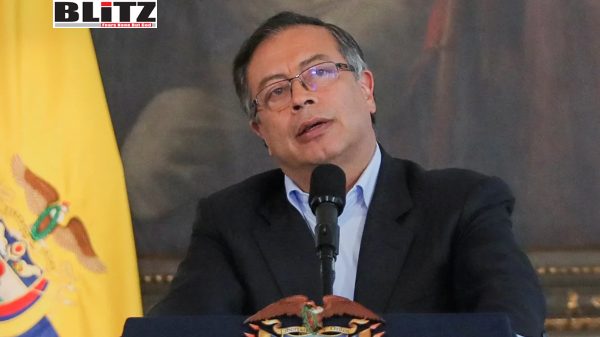UN Human Rights Council only helps to keep Palestinians in poverty
- Update Time : Tuesday, March 17, 2020

Dr. Edy Cohen
In a blatant capitulation to the BDS movement, The UN Human Rights Council has published a list of 112 Israeli businesses linked to Jewish West Bank neighborhoods in an effort to stigmatize those businesses and encourage their boycott. This highly politicized decision will not hurt Israel, as it was intended to do, but will instead undermine the livelihood of the many Palestinians who—due to the lack of sufficient employment opportunities in Palestinian-governed areas—earn their living by working for those very Israeli businesses.
The UN has thus inflicted yet another economic blow in a series of such blows suffered by the Palestinian people. The Palestinian Authority (PA) declined an invitation to participate in the US-led economic conference in Bahrain in June 2019 and rejected the economic incentives offered in President Trump’s “Deal of a Century” without even hearing them. Trump’s proposal, dismissed by the PA out of hand, included, among many other benefits, plans to naturalize Palestinian refugees currently living in subsistence conditions in surrounding Arab states. The UN only adds to the Palestinians’ suffering by causing harm to one of their sources of income.
The PA’s wholesale violation of the Oslo Accords of the 1990s only worsened the economic position of the Palestinians living in today’s areas A and B. Many of them still reminisce about the more prosperous days when Israelis would come to their villages as well to Gaza to buy Palestinian products. All that changed with the stroke of a pen when the Accords birthed the PA and granted it authority over economic and social policy in areas A and B.
The establishment of Palestinian economic autonomy was intended to improve the prospects for prosperity and significantly improve the Palestinians’ quality of life. Despite good intentions, exactly the opposite came to pass. The PA’s incompetent and corrupt governance led to the deterioration of Palestinian quality of life and increased poverty while allowing cronies to steal public resources and exchange political favors for personal benefit. It’s no wonder that many Palestinians long for the days before Oslo.
The Israeli economy is the driving force behind Palestinian economic growth. The average salary of Palestinians working in Israel is several times the wage of Palestinians working in areas controlled by the PA, and the industrial area in the West Bank serves as a source of income for thousands of Palestinians. Palestinians work side by side with Israelis in Mishor Adumim, Shahak, Hinanit, Shaked, Ariel, Kiryat Arba, and elsewhere. Regrettably, all of this is likely to change if the UN decision has its intended impact on the Israeli companies being boycotted.
About 200,000 Palestinians earned their living last year by working in Israel and Israeli companies in the West Bank. Most are employed by the companies the UN seeks to boycott. These Palestinians look beyond ideology: they simply want to earn a decent living to support their families. Moreover, they strengthen and contribute much to Israel’s economy.
This leads to some interesting political contradictions. For example, the Palestinians themselves are often the people building the West Bank’s Jewish neighborhoods, while their leaders deride these very neighborhoods as “a cancer in the body of the Palestinian people” and threaten and punish Palestinian construction workers for taking such employment. Most are not deterred by either the rhetorical incitement or the threats. It was also largely Palestinian construction workers who built the security wall that separates the West Bank from Israel proper. It’s even possible that the concrete used to make the wall was purchased from Palestinian companies.
There is little doubt that if Trump’s peace plan were brought before the Palestinians for a popular vote, the vast majority would be in favor. This is because the average Palestinian simply wants to live with dignity and make a decent living. Many of the Palestinian “refugees” in the neighboring Arab states don’t have a passport, let alone money. The Palestinian leadership, on the other hand, enjoys the benefits of both national and diplomatic passports.
The Palestinians who oppose the US-led proposal are senior PA officials who would like to maintain their access to the internationally donated wealth intended for their people. The UN is doing its best to assist them.
Dr. Edy Cohen (Ph.D. Bar-Ilan University) is fluent in Arabic and specializes in inter-Arab relations, the Arab-Israeli conflict, terrorism, Jewish communities in the Arab world. He is a researcher at the BESA Center and author of the book The Holocaust in the Eyes of Mahmoud Abbas (Hebrew).














